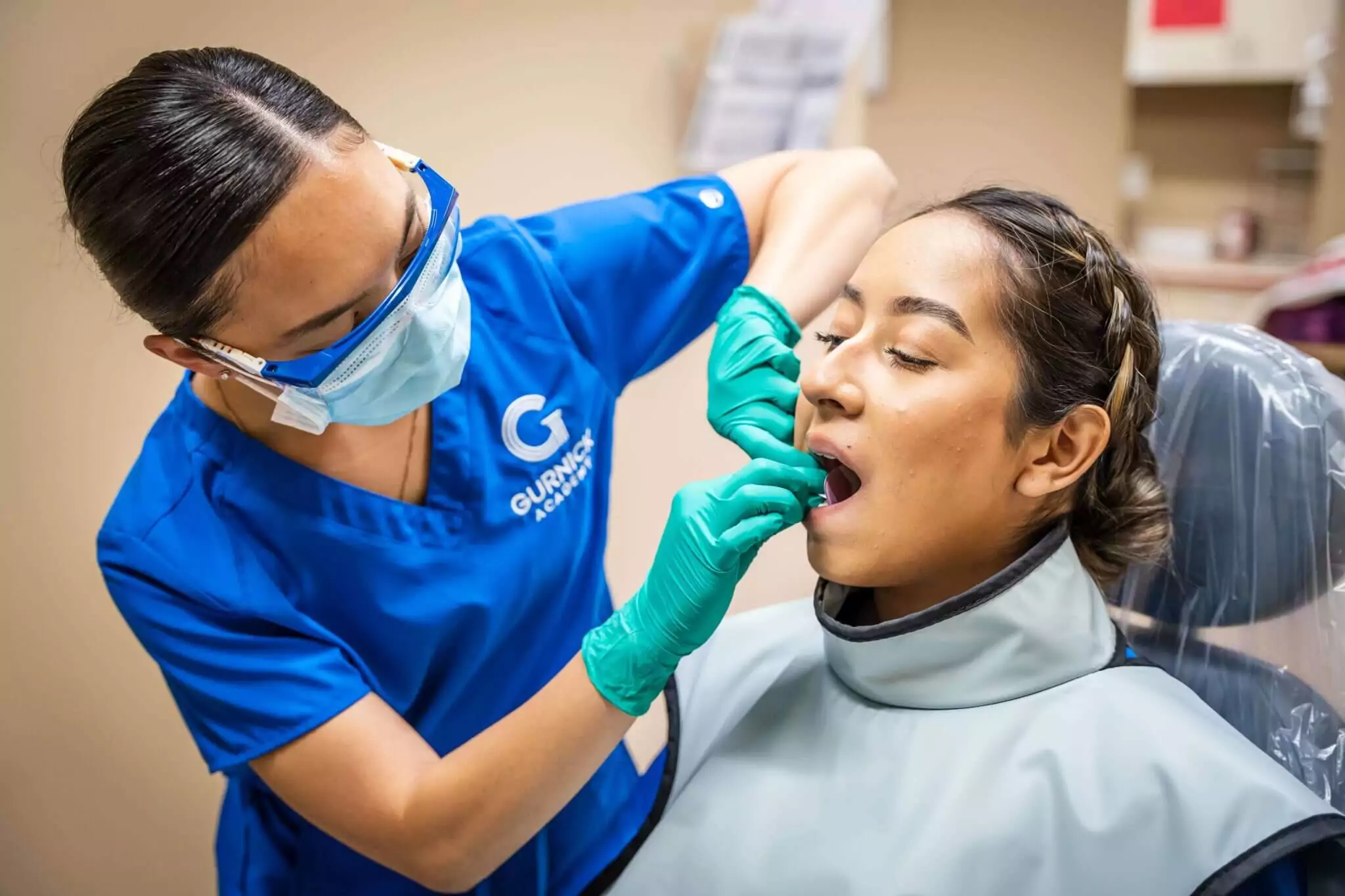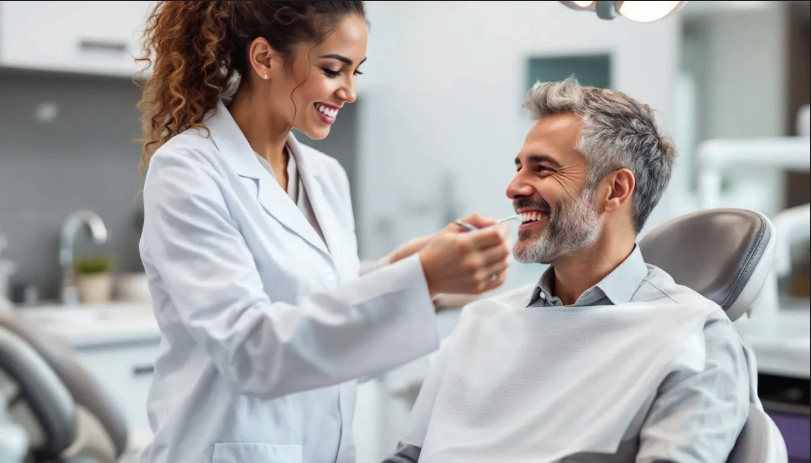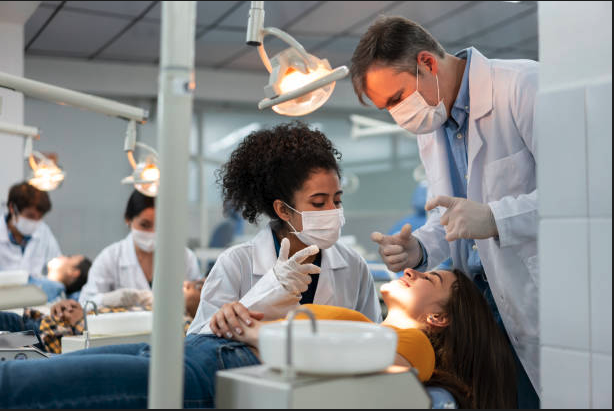Table of contents
Get Started with Kwikly
Get the latest updates, insights, and exclusive content delivered straight to your inbox.
Who It’s For:
- Prospective dental hygiene students exploring career options
- Dental hygienists curious about nontraditional job settings
- Career changers considering opportunities beyond clinical roles
- Public health professionals and educators
- Employers looking to expand dental hygiene roles in various settings
Key Takeaways
- You’ll probably end up working in a private dental office, where your job duties may vary depending on the work setting, but typically include handling essential procedures and teaching patients about keeping their teeth healthy.
- You can also work in community health settings, mobile dental units, schools, and federal facilities, helping people who don’t always have easy access to dental care.
- If you want to advance your career, you can get into teaching, research, or administrative roles in dental hygiene programs and corporate clinics. Some roles, such as teaching in schools or higher education, may require a bachelor's degree or master's degree. It’s all about keeping up with your education and focusing on quality care.
Where do dental hygienists work? If you're thinking about this career, you've probably wondered about your options as you go into dental care. From dental offices to community clinics and schools, dental hygienists work in all kinds of places. We're going to break down where you can work as a dental hygienist and what you'll actually be doing in these different spots.
Introduction to Dental Hygiene
If you're thinking about dental hygiene, you're looking at a career that's all about keeping people's smiles healthy. Dental hygienists work closely with dentists, and they're the ones who make sure patients get the education and care they need tomaintain optimal oral health. Getting started isn't complicated - you'll need to graduate from an accredited dental hygiene program that mixes classroom learning with real hands-on practice. It's straightforward, and it gets you ready for what's ahead.
Once you're working, your job is pretty clear - help people take care of their teeth and gums during clinical practice and after they go home. You'll be doing cleanings, checking on oral health, and teaching patients the right way to brush and floss. You'll also apply preventive treatments and show people how to keep their mouths healthy at home. Dental hygienists work in all kinds of places, but no matter where you end up, it's all about the same thing - keeping patients' oral hygiene on track and stopping problems before they start.
Dental hygienists have various career paths, including clinical, educational, and research roles.
Dental Offices and Private Practice
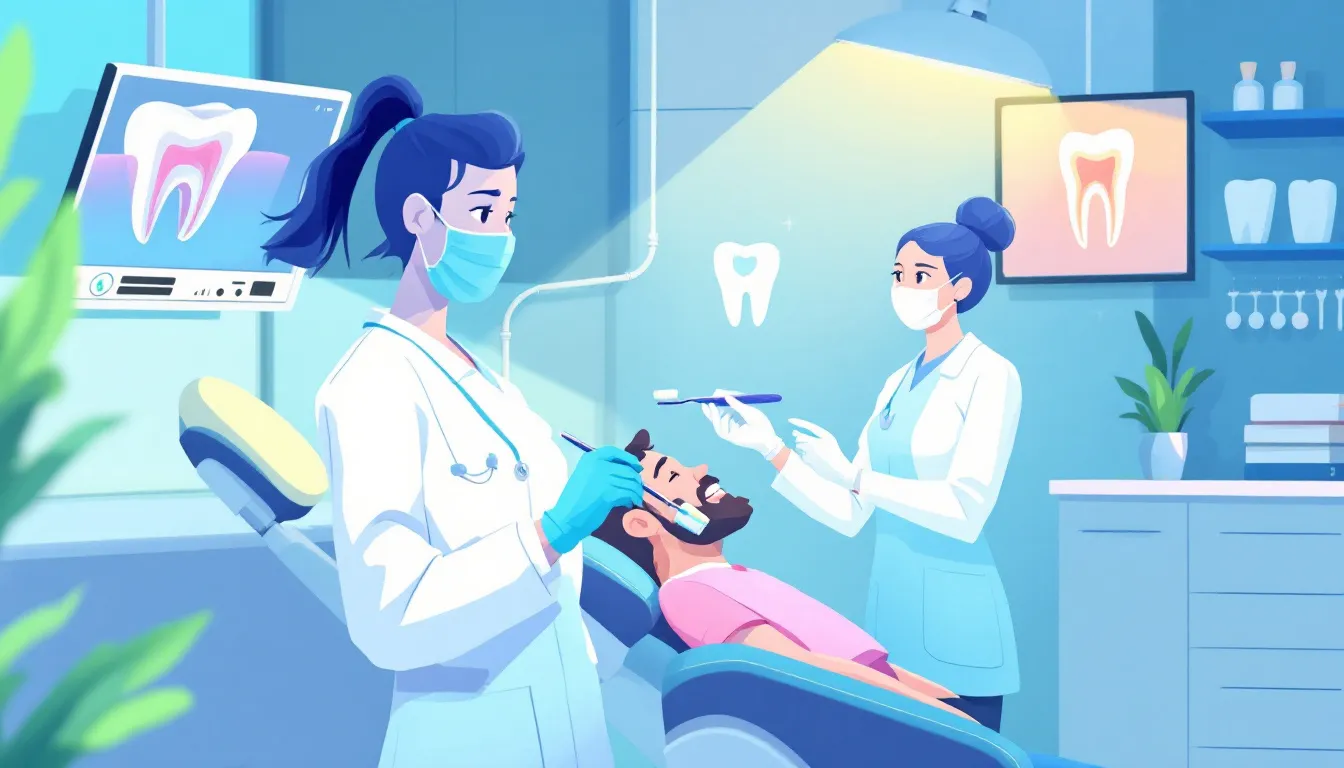
If you’re thinking about becoming a dental hygienist, chances are you’ll end up working in dentists' offices and private dental offices. That’s where most dental hygienists spend their days, and honestly, it’s a pretty good setup. You get to provide preventive care and work alongside dentists doing the kind of clinical work that really matters for people’s oral health.
Your day-to-day work is going to involve some pretty essential stuff. You’ll be removing plaque, calculus, and stains from teeth - the kind of work that makes a real difference. You’ll also take dental X-rays (also known as dental radiographs), which are huge for catching dental problems early. And yes, you’ll be wearing safety glasses, face masks, and gloves pretty much all the time. It’s just standard practice to keep everyone safe, and you’ll want those safety glasses to protect you from any potential hazards.
As a dental hygienist, you’re also going to be responsible for:
- Assessing patients’ oral health
- Developing personalized care plans
- Conducting thorough oral health assessments
- Educate patients on proper oral hygiene techniques
In some states, dental hygienists may administer local anesthesia and nitrous oxide-oxygen sedation as part of their clinical duties. The ability to administer local anesthesia is determined by state regulations.
This kind of proactive approach is what really helps people avoid gum disease and other oral health problems, including identifying and preventing oral diseases, down the road.
Dental hygienists may also apply antimicrobial agents to help prevent or treat oral infections.
If you want to get into this field, you’ll need to complete an accredited dental hygiene program and pass both national and state exams. It’s rigorous training, but it means you’ll be ready to handle medical emergencies and follow the right procedures to keep radiation exposure low during X-rays.
Community Health Settings
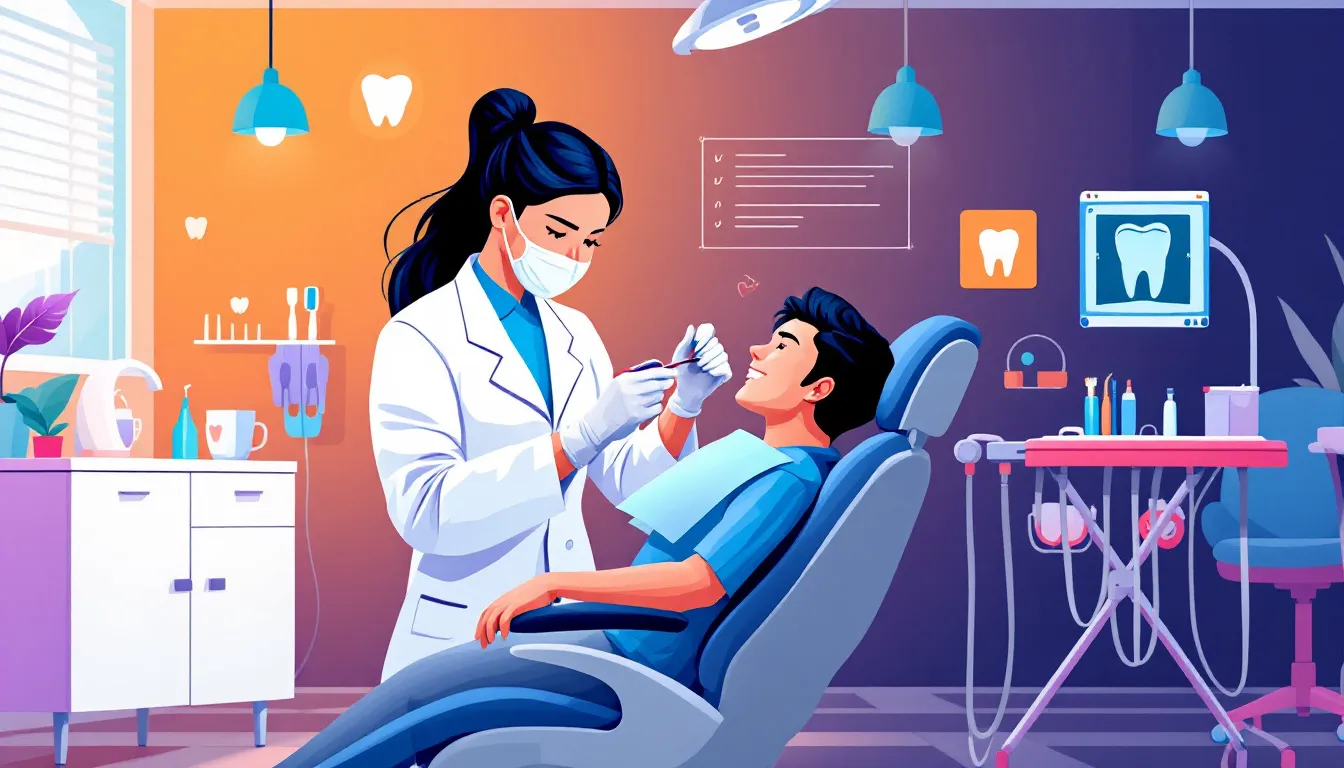
If you’re working as a dental hygienist, you’ve probably noticed there’s more to the job than just private practices. You’re seeing more opportunities in public health roles, where you can tackle specific treatment needs and team up with other health professionals to make dental care more accessible. These roles put you in all kinds of settings - think rural clinics and hospitals where you’re really making a difference.
Establishing a dental home for children and underserved populations ensures ongoing, preventive dental care and helps create familiarity with dental providers, which is essential for long-term oral health and preventing gum disease.
Mobile dental units are where things get really interesting in community health. These units let you bring care directly to underserved areas, reaching people who just can’t make it to traditional dental offices. When you’re working with mobile units, you’re not just providing care - you’re improving preventive care and oral health education in a way that really matters for public health.
Here’s the best part: in many states, you don’t need a dentist looking over your shoulder when you’re working in community health settings. That means you’ve got more flexibility and can reach more people who need dental care. It’s a game-changer for how you can practice.
Educational Institutions
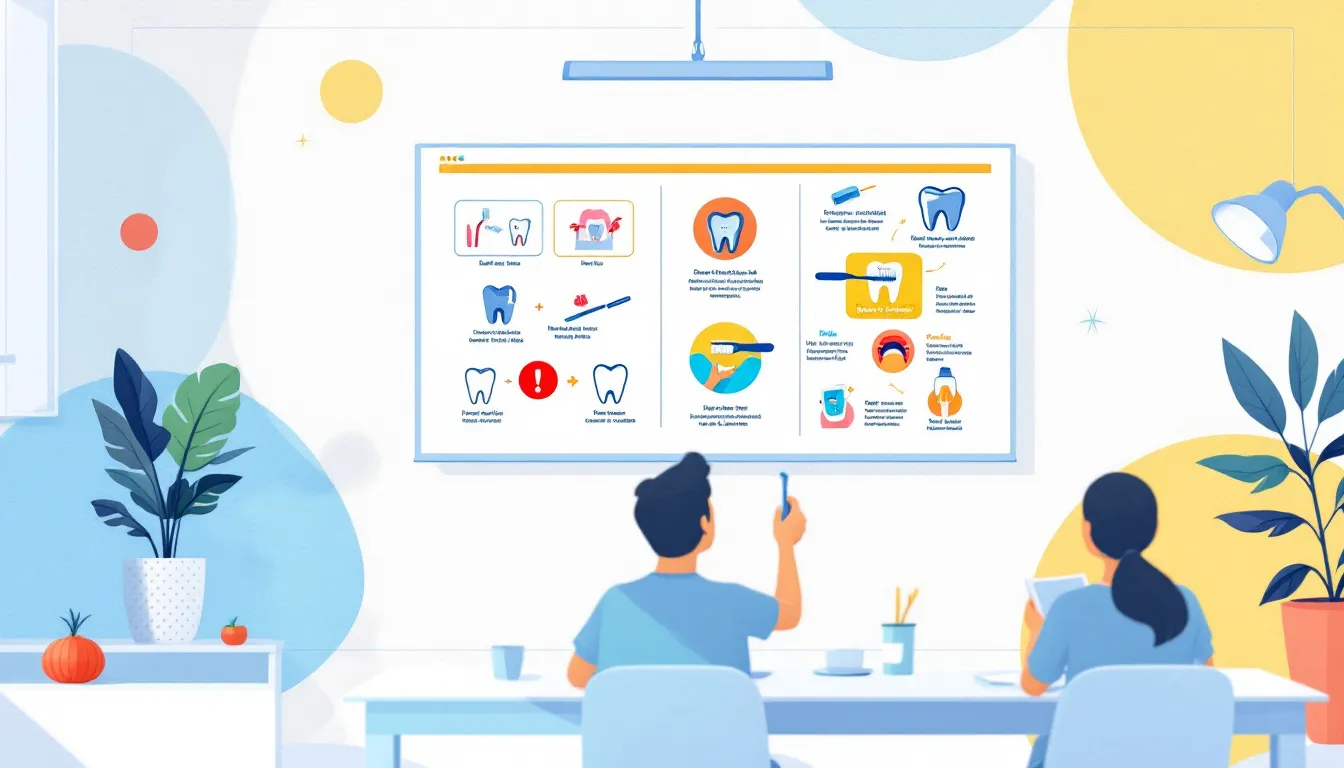
You’ve got a chance to shape the future of your profession by teaching in accredited dental hygiene programs. These roles are all about classroom instruction and hands-on training, making sure that new generations of dental hygienists get the educational support they need and are ready to go. Education dental hygienists typically includes completing an associate degree or associate's degree in dental hygiene, which combines classroom and clinical training. Licensing requirements vary by state but generally require graduation from an accredited program, passing national and state exams, and continuing dental education.
If you’re into research and development, you can help move the needle on dental products, techniques, and public health policies. It’s pretty vital work that keeps improving how we do dental care and what kind of results we get.
Federal training programs give you real career advancement opportunities. You can keep learning and step into administrative roles, like program directors or community clinic administrators. It’s a solid way to grow your career.
Federal Government Facilities
Federal government facilities, including Veterans Affairs hospitals, are always looking for dental hygienists to support the oral health needs of specific populations. These positions are crucial if you want to provide comprehensive dental care to veterans and active-duty military personnel.
When you're working in these settings, you'll be doing dental cleanings, preventive care, and personalized oral health care education. You're addressing the unique needs of health professionals, service members, and veterans. It's specialized work where you get to provide tailored care to these groups.
Nursing Homes and Residential Care Facilities
In nursing homes and residential care facilities, you'll play a crucial role in improving the oral health of elderly residents. You're providing preventive dental care and education, which is essential for maintaining the overall health of these vulnerable populations.
Having a regular presence in nursing homes means you can deliver consistent dental hygiene services and educational outreach. It's crucial work for preventing oral health issues in elderly populations, and you'll really see the impact you're making.
When you're working closely with nursing home staff, you'll make sure residents get the appropriate oral care and attention they need. This collaboration makes the quality of care better and you'll need strong communication skills and interpersonal skills to make it work.
Corporate Dental Clinics
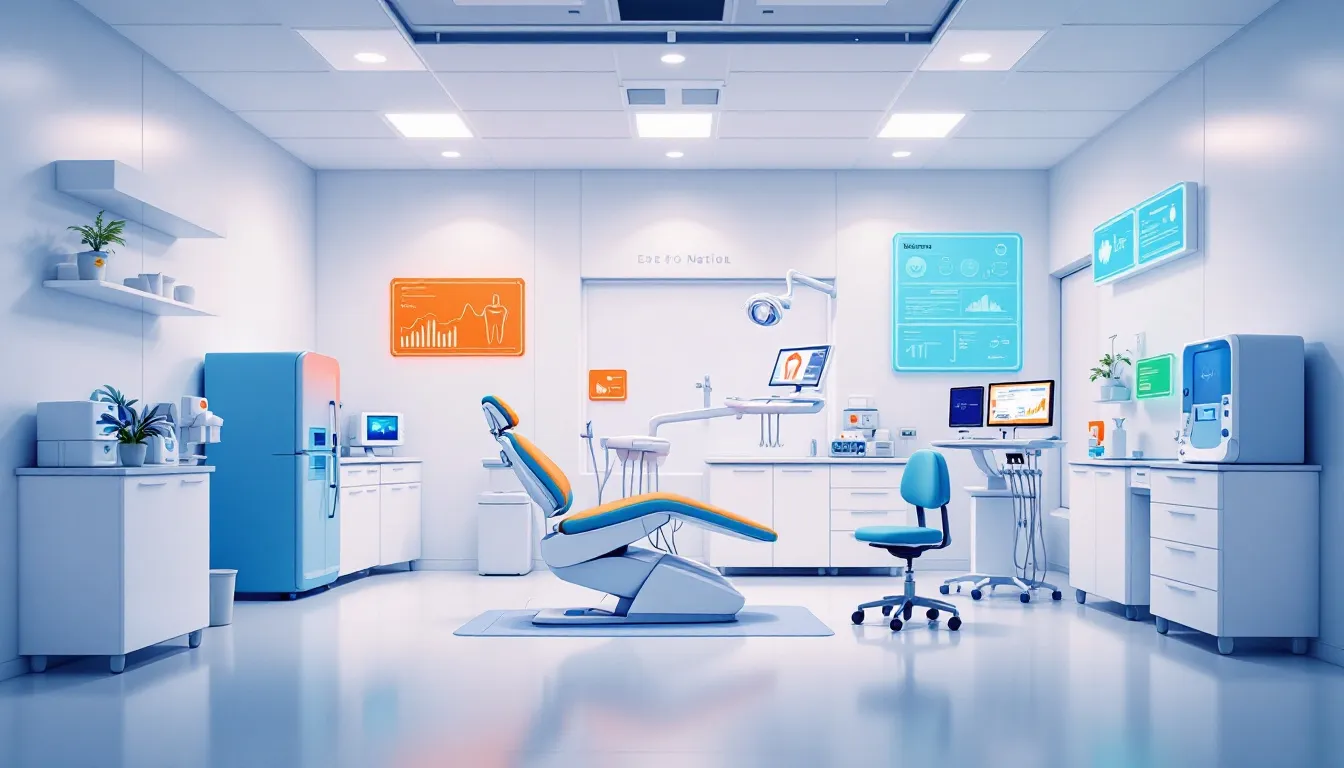
Corporate dental clinics give you a structured place to work where you're part of a real team. These clinics make sure things work the same way at every location, so you know what to expect and patients get consistent, quality care.
You'll love the flexible scheduling in corporate settings - lots of these clinics hire hygienists part-time, which works great if that's what you're looking for. Plus, you get access to the latest technology and resources, which makes your job easier and helps you give better care to patients.
Corporate clinics give you a more predictable environment with clear protocols for everything you do. That means you can focus on what you do best - providing great dental hygiene care - without dealing with all the business headaches that come with private practices.
Mobile Dental Units
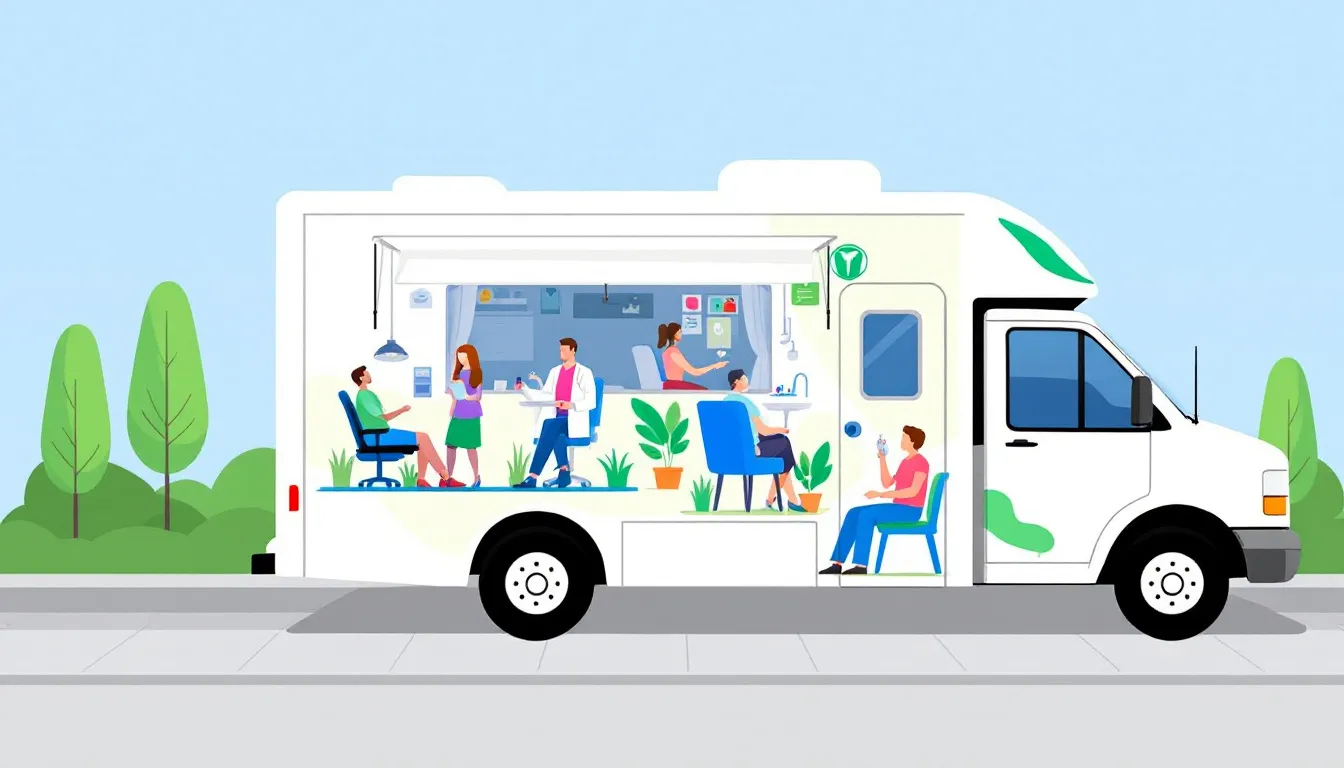
Mobile dental units are exactly what you need if you're looking for flexibility in your dental hygiene career. These units come packed with everything you need - ultrasonic tools and all the gear for both preventive and restorative work. You can literally take your practice anywhere. Think schools, rural communities, anywhere people need care but can't get to a traditional office.
When you work with mobile units, you're bringing real services to people who need them most. We're talking screenings, fluoride applications, basic dental hygiene - all the essentials. You're reaching people who might never step foot in a dental office otherwise, and helping them treat and prevent dental diseases. That's pretty powerful stuff.
Here's the best part: if you're working in mobile units, you often get more independence. Many hygienists work under public health guidelines without a dentist breathing down their neck. You get to make decisions and really own your practice.
Research and Development
If you're the type who likes to dig deeper, research and development might be your thing. The field really needs more people like you. Right now, we're borrowing too much from other fields instead of creating our own studies and theories. You could be part of changing that.
Getting into research methodology during your education sets you up for evidence-based practice. You learn to think critically about what you're doing and why. We need more doctoral programs specifically for dental hygiene too. Someone's got to create the original research and frameworks we're missing.
Skills and Qualities of Successful Dental Hygienists
If you want to really make it as a dental hygienist, you're going to need way more than just knowing your way around the tools. The hygienists who really succeed? They're the ones who can talk to patients like real people. You've got to be able to explain proper brushing and flossing in a way that doesn't make people's eyes glaze over, and honestly, in a way that actually gets them excited about taking care of their teeth. Your people skills matter big time here - you need to make patients feel comfortable and build that trust, especially when someone's already nervous about being in the dental chair.
You'll also need to think on your feet and really pay attention to what's going on with each patient's mouth. Every person who sits in that chair is different, so you've got to be able to figure out what they need and come up with a plan that actually works for them. Things can get pretty hectic in a dental office, so staying cool when it gets busy is huge. A lot of hygienists end up going back to school to specialize - maybe pediatric work or periodontics - which opens up even more doors if that's something you're into. Whether you're teaching someone how to floss properly or dealing with some serious gum issues, these skills are what'll help you actually make a difference in people's lives.
Median Salary and Benefits
If you're thinking about becoming a dental hygienist, you'll be happy to know the pay is pretty solid. We're talking about a median salary that hovers around $94,000 per year, according to the latest labor statistics. Your actual earnings? Well, that depends on where you end up working, how much experience you've got under your belt, and what type of setting you choose. If you land a spot in a private practice or faculty practice clinic, you'll likely earn more than if you go the community health or public health clinic route.
But here's the thing—it's not just about the paycheck. You're looking at a whole package of benefits that make this career pretty sweet. We're talking health insurance, retirement plans, and paid time off. A lot of employers will even back your continuing education, so you can keep your skills sharp and stay on top of what's new in dental hygiene. These benefits don't just make the profession financially rewarding—they've got your back for long-term career growth too.
Job Outlook and Growth
If you're thinking about a career move, dental hygiene is where it's at. The job outlook? Pretty solid. You're looking at 9% growth through 2033, which is what the Bureau of Labor Statistics is saying. That growth isn't just a number – it's real demand for oral health care, especially with more people getting older and needing complex care. This shift reflects larger trends in dental employment and the evolving ways dental professionals are finding work.
You won't be stuck in just one type of place either. Dental hygienists work everywhere – private offices, public health clinics, government spots, you name it. Get the right education and training, and you've got plenty of ways to build something good in oral health. Doesn't matter if you're just starting out or ready to move up – the opportunities are there.
Challenges and Rewards in the Dental Hygiene Profession
Like any healthcare job, dental hygiene comes with its own challenges and perks. You're going to be around infectious diseases and bodily stuff, so you'll need to wear safety glasses and gloves - following those strict protocols isn't just a good idea, it's how you keep yourself and your patients safe. You'll also run into patients who are nervous or scared about dental work, which means your people skills and how well you can talk to them really matter.
But here's the thing - a lot of dental hygienists find the work pretty rewarding. You get to actually make a difference in people's oral health and how they feel overall, helping them keep their smiles healthy for life. If you've got the right training, skills, and attitude, dental hygiene can give you a career where you're truly making a difference every single day.
Summary
The variety of places you can work as a dental hygienist (also known as oral hygienists) is pretty amazing. Private practices, mobile units, schools, federal facilities - you name it. You’re not stuck in one type of environment if you don’t want to be.
Bottom line: your opportunities are wide open. Whether you’re just starting out or thinking about switching things up, dental hygienists make a real difference in people’s lives. A registered dental hygienist is a licensed professional who meets state requirements for practice. The impact you can have on public health and individual well-being is something you can actually see and measure.
Frequently Asked Questions
What are the primary work settings for dental hygienists?
You've got options. Most hygienists work in private dental offices, but you can also find work in community health centers, schools, government facilities, nursing homes, corporate clinics, and mobile units. The variety means you can find something that fits what you're looking for.
What education is required to become a dental hygienist?
You need to graduate from an accredited dental hygiene program and pass your national and state exams. It's straightforward - this education and certification process makes sure you know what you're doing when you start working with patients.
What safety protocols do dental hygienists follow?
Safety is a big deal, and you'll follow strict protocols. You'll wear safety glasses, face masks, and gloves for every procedure. You'll also learn how to handle medical emergencies and keep radiation exposure low during X-rays. These measures protect both you and your patients - no cutting corners.
How can dental hygienists advance their careers?
You can move into teaching, research, and administrative roles, especially in public health. There are federal training programs available too if you want to develop your skills further. Taking advantage of these opportunities can really boost your career and open up new paths.
What role do dental hygienists play in elderly care settings?
In elderly care, you're doing preventive dental care and education while working with other care providers. You help residents maintain proper oral hygiene, which is crucial for their overall health and well-being. Your work makes a real difference in their quality of life.




